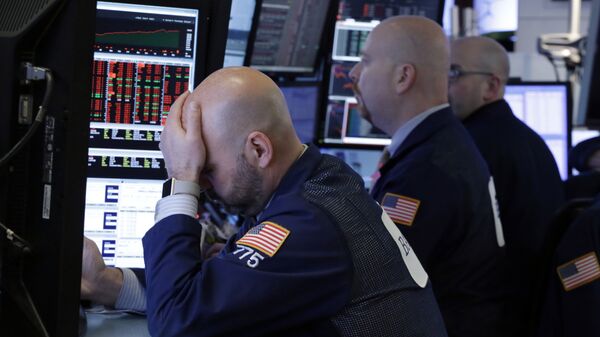The Dow Jones Industrial Average (DJIA) index fell by 1,338.46 points, and the S&P 500 dropped 131.09 points into red territory. The Nasdaq Composite slid by 344.94 points. Wednesday’s closing figures come after Wall Street was able to make some gains the day prior in anticipation of a possible $1 trillion financial stimulus package from the Trump administration.
Oil prices, meanwhile, sharply fell nearly 17%, marking their lowest level in 18 years. Brent crude fell over 8%.
With stocks and commodities taking a nosedive, analysts have indicated that the moves signal a heightened interest by investors in acquiring cash quickly in a bid to better cope with the economic downturn brought on by the pandemic. All 50 US states have reported COVID-19 cases, and according to the Johns Hopkins University Center for Systems Science and Engineering, at least 115 individuals have died in the country as a result of contracting the virus.
The day’s trading also marked yet another volatile session in which markets were stopped for a 15-minute period. At roughly 1 p.m. local time, the S&P 500 fell by 7% and triggered a market wide “circuit breaker” trading halt, the fourth such incident to occur in recent weeks.
Additionally, Wednesday’s figures erased the DJIA’s gains since US President Donald Trump’s inauguration in January 2017.
‘America Will End as We Know It’
Despite the Trump administration’s efforts to put together a stimulus package to ease economic concerns, some experts are calling on Trump to shut down the Land of the Free.
Bill Ackman, the founder and CEO of hedge fund Pershing Square Capital Management, told CNBC Wednesday that the president needed to close the country for a period of 30 days in order to completely contain the spread of the coronavirus.
“What’s scaring the American people and corporate America now is the gradual roll-out,” he told CNBC’s “Halftime Report.” “We Need to Shut it down now … This is the only answer.”
“America will end as we know it. I’m sorry to say so, unless we take this option,” Ackman continued.
US Senate Passes House-Approved Coronavirus Legislation
Although the initial voting announcement earlier Wednesday by US Senate Majority Leader Mitch McConnell (R-KY) had little effect on trading, the actual passage of the House-approved COVID-19 relief measure did help swing stocks somewhat from negative territory.
The final vote came down to 90 for and 8 against the Families First Coronavirus Response Act.
— Senate Cloakroom (@SenateCloakroom) March 18, 2020
McConnell has indicated that he will not adjourn the Senate until lawmakers pass a “phase three” economic stimulus package that is “far bolder” than measures included in the newly approved legislation.
McConnell expects the new bill to “include significant relief for small businesses all across the country.” The House-passed bill expands federal funding for Medicaid and provides Americans with up to two weeks of paid sick leave in the event a worker tests positive for the novel coronavirus.
Trump, who invoked the Defense Production Act Wednesday during a White House briefing, has indicated that he will sign the House-passed legislation, should the Senate send it to his desk.



